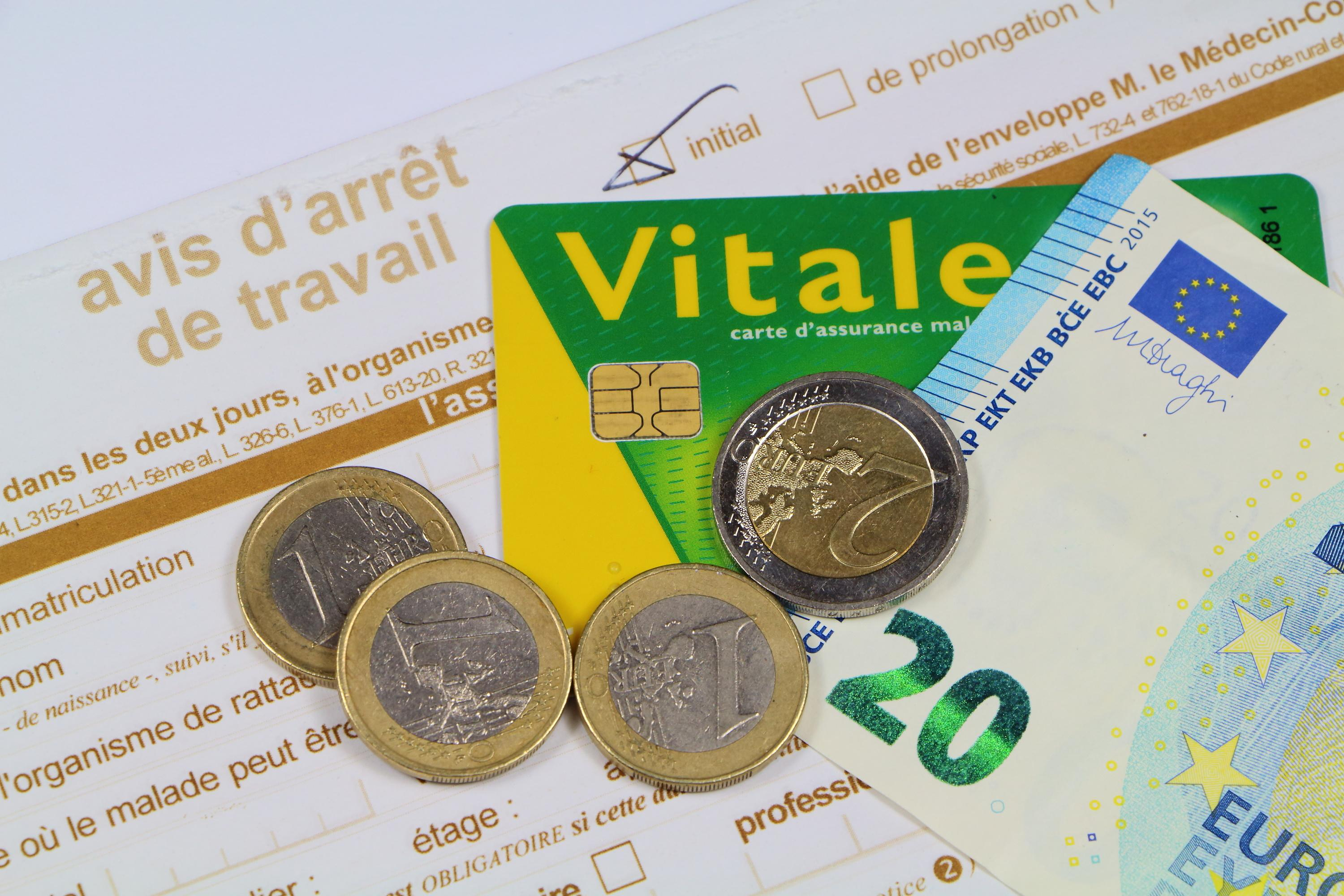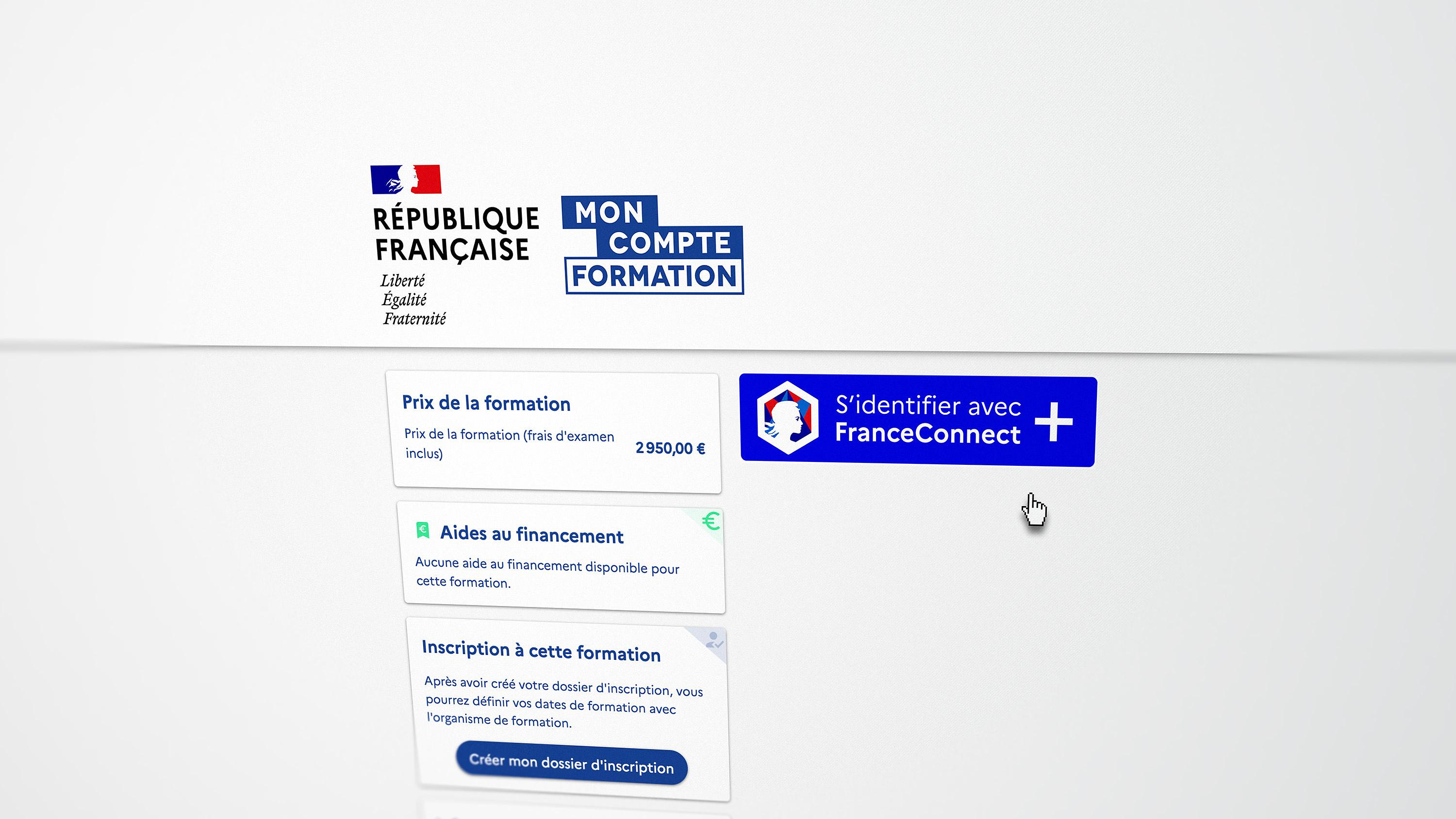At the end of the meeting with the chancellor, almost everyone joins in as if for a great polonaise. Curled like bratwurst snails so that they fit one after the other in the large hall of the locomotive shed in Marburg so that we can take a selfie with Olaf Scholz. It takes three to five seconds per photo. Scholz stands there as if frozen and smiles so constantly that his facial muscles have to hurt the next morning. If someone respectfully keeps too far away from the head of government, Scholz waves him closer. The Chancellor up close.
Olaf Scholz has reason to smile this Thursday evening in northern Hesse. 150 people asked him 20 questions in 90 minutes during the citizens' dialogue. And in the end, the chancellor can't help but return to Berlin with the certainty that the majority of citizens share his course in the Ukraine war. In any case, the atmosphere in the engine shed conveys this impression. "I'm so glad you're hesitant to wait and see about this war," a young woman introduces question twelve. The applause is huge at this point. Scholz does not contradict her on the keyword "hesitating".
Olaf Scholz has decided to hold talks with the chancellor in every federal state to find out what moves people. "There is no better grounding" and more certainty about what is important to people, said Scholz that evening.
Now this was the fifth in the series. And it was more relaxed than on previous occasions. When there were protests with boos and insults at venues. Like last August in Magdeburg. You could literally feel the tension in the streets around the historic fortress where Scholz performed. Or as before in Neuruppin, Brandenburg, when the chancellor was trilled down and booed at a citizens' consultation hour.
But unlike Neuruppin, Marburg is a small student town with a corresponding number of young people and a red-green majority. In the last local elections, the Greens had done best, just ahead of the SPD. Together, both parties came to half of the votes, the AfD played and plays no significant role. And in the last federal election, the SPD won 37 and 30 percent of the first and second votes in the constituency, respectively. So Marburg is a home game for Olaf Scholz.
Of course, there will also be demonstrations there when the chancellor arrives. But not with the force, this anger like in the East. The left gathers the people at the main station, a banner reads "class struggle". That is what is expected of the left. A speaker shrillly calls for better conditions for “teachers, students” and others in university operations. The mood is so medium. It's exhausting shouting gender-appropriate slogans into the megaphone. The atmosphere in the locomotive shed, on the other hand, is good.
The 150 chosen by drawing lots are put in an even better mood by a moderator who seems to be in a good mood. Then the "paths" are practiced that one should follow in order to later get to the chancellor selfie. One photo each. Nevertheless, after the first questions, after the usual long-running issues such as the yawning demand for a speed limit, it quickly becomes clear: Many here in the room are worried, some are seriously afraid. "I'm afraid that Russia will attack Germany," says a teacher before beginning question 14. Again the applause is long and heavy.
The 150 citizens are not interested in rising energy prices. Whether there will be enough gas, electricity or even energy from renewable sources this winter or next, or oil if need be. They don't want to know anything about inflation, how long the economy will continue to do well, whether their jobs are secure. Or whether they can afford to live their lives at the current level in the future.
They also don't ask about the consequences of the most recent fatal knife attack on the regional train from Kiel to Hamburg or the poison attack in Castrop-Rauxel that was probably foiled, not about internal security in the country, about secure pensions, better schools. They want to know from Olaf Scholz what he is doing to prevent war from coming to Germany.
Now the audience that evening is on average older and from a "rather left-wing town", as one participant puts it. It seems educated above average and interested in politics – of course. And in addition to the SPD, the Left Party in Marburg is also a fixture, with double-digit results in the last local elections. The woman with the last question begins her contribution by pointing out that she is a veteran social democrat.
In this environment, arms deliveries to Ukraine, which Moscow could see as a provocation, are viewed with skepticism. And since Germany's decision to supply battle tanks, increasingly with fruit. The Chancellor is playing a home game this evening. But he still has to do his own thing to win it. He succeeds - but not for the reason he probably thinks.
An elderly gentleman wants to know what makes Scholz so sure that the tank deliveries will not result in an escalation. "Wouldn't it be better if we had a conversation?" the man says. De facto means: letting Ukraine down. "A war between NATO and Russia would be terrible," Scholz replies. He adds: "We have the responsibility to do everything we can to ensure that this escalation does not happen." When it came to supplying more weapons, he did not allow himself to be pushed into going it alone: "If some call out: 'Go ahead!', then I say : 'That's not the right way.'” Applause.
Another participant would like the chancellor to assess whether the eastward expansion of NATO is not an unacceptable impertinence for Russia. "I was in Moscow and before that in Kyiv," says Scholz. "I said in both cities that Ukraine's NATO membership is really not on the agenda here, it won't happen in the next 30 to 40 years. And yet this argument provided one of the flimsiest reasons for war for Putin.” It was all a pretense.
A young woman wants to find out when Putin will lay down his arms: "What has to happen for this to stop?" The chancellor only sees an opportunity to negotiate an end to the Ukraine war if Russia agrees to withdraw troops from the occupied territories I am ready to declare: "The moment they let it be known that the way is troop withdrawal, at that moment the way for talks with Ukraine is - I'm pretty sure - free." Then there is also the opportunity to admit oneself communicate. "But we still have to work a bit towards that," adds Scholz. Then, looking at Putin, the Chancellor declared almost defiantly: "Regardless of what is said publicly, I will continue to speak to him."
The applause is polite. The fact that Olaf Scholz managed to get his catchphrases about the minimum wage and successful housing construction this time is also lost, as are the demands of the always extremely present, well-prepared representatives of doctors, nurses and other health professionals. Or the fact that the chancellor is demonstratively backing his interior minister, Nancy Faeser, for her candidacy as SPD top candidate in the Hessian state election campaign. Although he might lose her by doing so.
At the very end, after the selfies, there are pretzels, homemade ice tea and a dry assessment of the participants. "I thought it was okay. The chancellor responded to the questions and he doesn't seem as colorless as on television," says a woman from Marburg. Another participant adds: “I am satisfied. He didn't say anything new, but I wasn't expecting much either.” Let's call it a narrow victory on points.

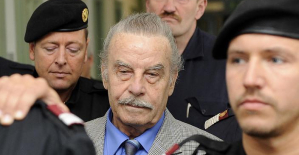 Austria: incestuous torturer Josef Fritzl, nicknamed the “national monster”, could soon be released
Austria: incestuous torturer Josef Fritzl, nicknamed the “national monster”, could soon be released An airline continues to treat a centenarian as a one-year-old baby
An airline continues to treat a centenarian as a one-year-old baby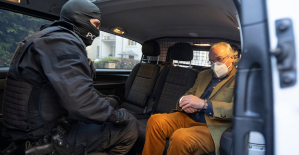 Germany: the trial of nine “Citizens of the Reich” conspirators begins this Monday
Germany: the trial of nine “Citizens of the Reich” conspirators begins this Monday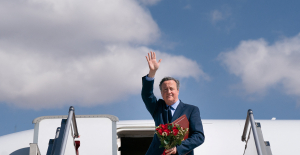 United Kingdom: David Cameron under fire after renting a jet estimated at 42 million pounds
United Kingdom: David Cameron under fire after renting a jet estimated at 42 million pounds Sánchez cancels his agenda and considers resigning: "I need to stop and reflect"
Sánchez cancels his agenda and considers resigning: "I need to stop and reflect" The Federal Committee of the PSOE interrupts the event to take to the streets with the militants
The Federal Committee of the PSOE interrupts the event to take to the streets with the militants Repsol: "We want to lead generative AI to guarantee its benefits and avoid risks"
Repsol: "We want to lead generative AI to guarantee its benefits and avoid risks" Osteoarthritis: an innovation to improve its management
Osteoarthritis: an innovation to improve its management Sanofi: demonstration in front of Paris headquarters against job cuts
Sanofi: demonstration in front of Paris headquarters against job cuts The Chinese car manufacturer BYD sets out to conquer France
The Chinese car manufacturer BYD sets out to conquer France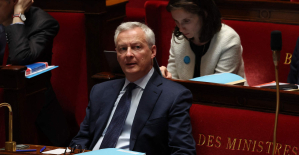 Public finances: after the deputies, Bruno Le Maire asks the senators for savings avenues
Public finances: after the deputies, Bruno Le Maire asks the senators for savings avenues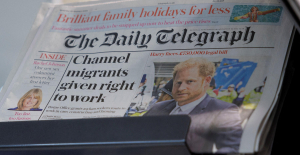 Faced with opposition from London, a fund supported by Abu Dhabi abandons the purchase of the Daily Telegraph
Faced with opposition from London, a fund supported by Abu Dhabi abandons the purchase of the Daily Telegraph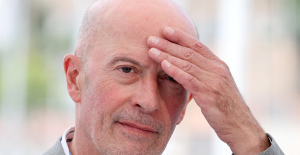 Jacques Audiard, Swann Arlaud, Benjamin Stora... A hundred men from cinema, theater and books in support of
Jacques Audiard, Swann Arlaud, Benjamin Stora... A hundred men from cinema, theater and books in support of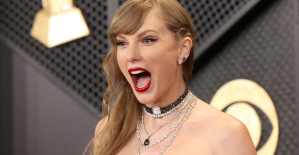 Resale, scams and fake tickets: how not to get scammed before Taylor Swift concerts
Resale, scams and fake tickets: how not to get scammed before Taylor Swift concerts Isild Le Besco is not ready to file a complaint against Benoît Jacquot
Isild Le Besco is not ready to file a complaint against Benoît Jacquot The Musée du Grand Siècle in Saint-Cloud, this 100 million euro project in Hauts-de-Seine which would weaken the A13
The Musée du Grand Siècle in Saint-Cloud, this 100 million euro project in Hauts-de-Seine which would weaken the A13 Omoda 7, another Chinese car that could be manufactured in Spain
Omoda 7, another Chinese car that could be manufactured in Spain BYD chooses CA Auto Bank as financial partner in Spain
BYD chooses CA Auto Bank as financial partner in Spain Tesla and Baidu sign key agreement to boost development of autonomous driving
Tesla and Baidu sign key agreement to boost development of autonomous driving Skoda Kodiaq 2024: a 'beast' plug-in hybrid SUV
Skoda Kodiaq 2024: a 'beast' plug-in hybrid SUV The home mortgage firm rises 3.8% in February and the average interest moderates to 3.33%
The home mortgage firm rises 3.8% in February and the average interest moderates to 3.33% This is how housing prices have changed in Spain in the last decade
This is how housing prices have changed in Spain in the last decade The home mortgage firm drops 10% in January and interest soars to 3.46%
The home mortgage firm drops 10% in January and interest soars to 3.46% The jewel of the Rocío de Nagüeles urbanization: a dream villa in Marbella
The jewel of the Rocío de Nagüeles urbanization: a dream villa in Marbella Europeans: a senior official on the National Rally list
Europeans: a senior official on the National Rally list Blockade of Sciences Po: the right denounces a “drift”, the government charges the rebels
Blockade of Sciences Po: the right denounces a “drift”, the government charges the rebels Even on a mission for NATO, the Charles-de-Gaulle remains under French control, Lecornu responds to Mélenchon
Even on a mission for NATO, the Charles-de-Gaulle remains under French control, Lecornu responds to Mélenchon “Deadly Europe”, “economic decline”, immigration… What to remember from Emmanuel Macron’s speech at the Sorbonne
“Deadly Europe”, “economic decline”, immigration… What to remember from Emmanuel Macron’s speech at the Sorbonne These French cities that will boycott the World Cup in Qatar
These French cities that will boycott the World Cup in Qatar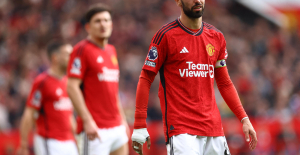 Premier League: Manchester United ready to sell the vast majority of its workforce
Premier League: Manchester United ready to sell the vast majority of its workforce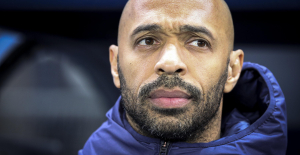 Paris 2024 Olympics: when will Thierry Henry reveal the list of Olympic Blues?
Paris 2024 Olympics: when will Thierry Henry reveal the list of Olympic Blues?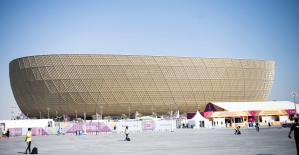 Rugby: Qatar's astronomical offer to host the biggest clashes between North and South
Rugby: Qatar's astronomical offer to host the biggest clashes between North and South OM-Atalanta Bergamo: at what time and on which channel to watch the Europa League semi-final first leg?
OM-Atalanta Bergamo: at what time and on which channel to watch the Europa League semi-final first leg?






